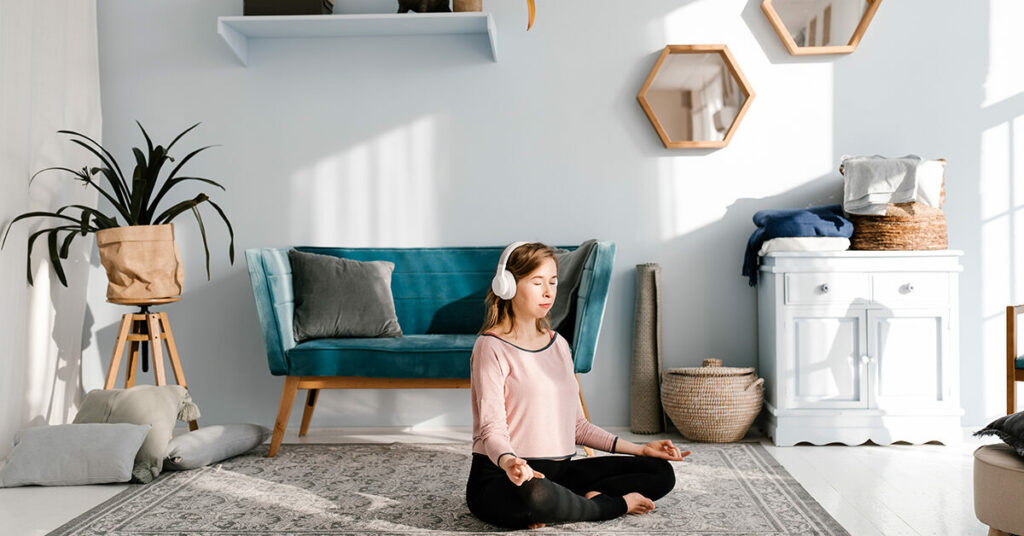The last few years have likely done a number on your mental health. From having to practice social distancing to watching the economy crumble, you probably felt a good amount of uncertainty. And even now, as the world slowly gets back to normal, you might still be dealing with the aftermath. If so, it’s important you take time to practice self-care.
Self-care might be the furthest thing from your mind right now, especially if you’re trying to get your finances under control. The good news is, you don’t have to break the bank to treat yourself. In this article, we share five budget-friendly ways you can practice self-care without breaking the bank.
1. Find a Hobby
Having a hobby is good for your mental health. It can reduce your stress levels, especially after a long day or when you need to unwind. Unlike doing something unconstructive like scrolling through Instagram, a hobby helps pass the time while making you feel happier. In short, a hobby is a healthy distraction.
Not to mention, hobbies don’t have to be expensive. Exercising can be a hobby, as well as reading a book, painting a picture, or experimenting in the kitchen. Chances are you might already have a hobby. But maybe you don’t do it as much as you’d like to. It’s time to start.
Make time in your schedule for your hobbies. Even if it’s 20 minutes a day, that’s better than nothing.
2. Become Financially Savvy
You might not consider this self-care, but getting your finances under control can do wonders for your mood. A key aspect is making sure your bank is the best fit for you. Unfortunately, not every bank is set up to help manage your money. For instance, some banks have hidden fees, poor security, or make it almost impossible to build your credit score.
Does this sound familiar? If so, you might want to reconsider who you’re banking with. Look for a bank that doesn’t add more to your plate, but makes things easier. That could be a bank that covers overdrafts on your debit card purchases when you’re low on cash or one that waives hidden fees.
Finances impact nearly every aspect of your life, from being able to afford a car to get to work or needing to purchase a home. Many people don’t realize it, but with a little extra effort with budgeting and banking, getting your finances in good order can work wonders on your stress levels and help the rest of your life operate smoothly.
3. Go for a Walk Outside
According to research, walking is a great way to boost your mood. It increases blood circulation and blood flow in your brain and body, which can help alleviate stress.
Instead of working out in your apartment after spending all day working in an office, consider taking a stroll outside. Making walking an everyday habit or even every other day. Because of how good walking is for your physical and mental well-being, consider doing it as much as you can.
To create a walking routine, make sure you carve out time to walk that actually works for your schedule. For example, if you’re exhausted after work, walking at 5 p.m. might not be a good option. On the other hand, if you’re an early bird, a 5 a.m. walk might be ideal.
4. Declutter Your Home
Chances are, you know how stressful clutter can be. Even if you’re not the cleanest and most organized person, too much clutter can be distracting. It can also impact your frame of mind and make it harder to accomplish tasks.
If you’re noticing that things are starting to pile up, it might be time to do something about it. According to experts, decluttering can make you feel better about your environment. You’ll feel more in control and efficient during the day.
Spend the day decluttering your home. Tidy up areas that are overcrowded, especially in places where you spend the most time like your home office or bedroom. What some people do is designate a place for the clutter. That could be a closet, a drawer, or even a shelf. Whatever you do, make sure you’re strategic so your home can bring you peace instead of adding to your stress.
5. Take a Break From Social Media
Social media is a great way to keep you connected with your friends and family. But too much time on social media can negatively impact your mental health. Constantly seeing how other people look and live can cause you to make comparisons. This can make you feel bad about yourself.
With that in mind, taking a break from social media might be the best thing you can do for your mental health. But don’t replace your social media use with another unhealthy habit. Replace it with a hobby or family time.
Engaging in self-care is something you should make time for as often as possible. It’s been proven to alleviate stress, reduce anxiety, increase your motivation, and boost your energy levels. In short, taking time to treat yourself will keep you moving forward.
